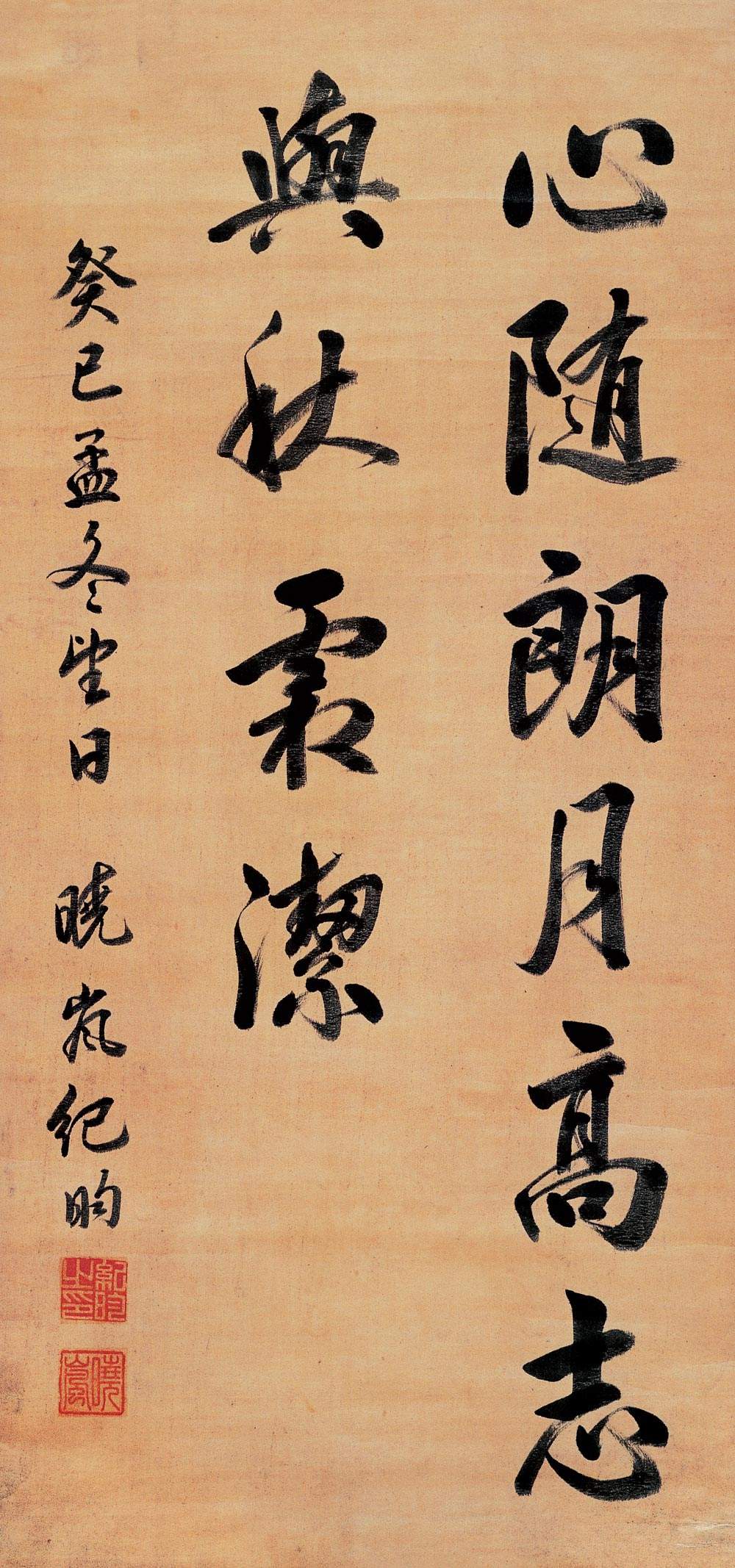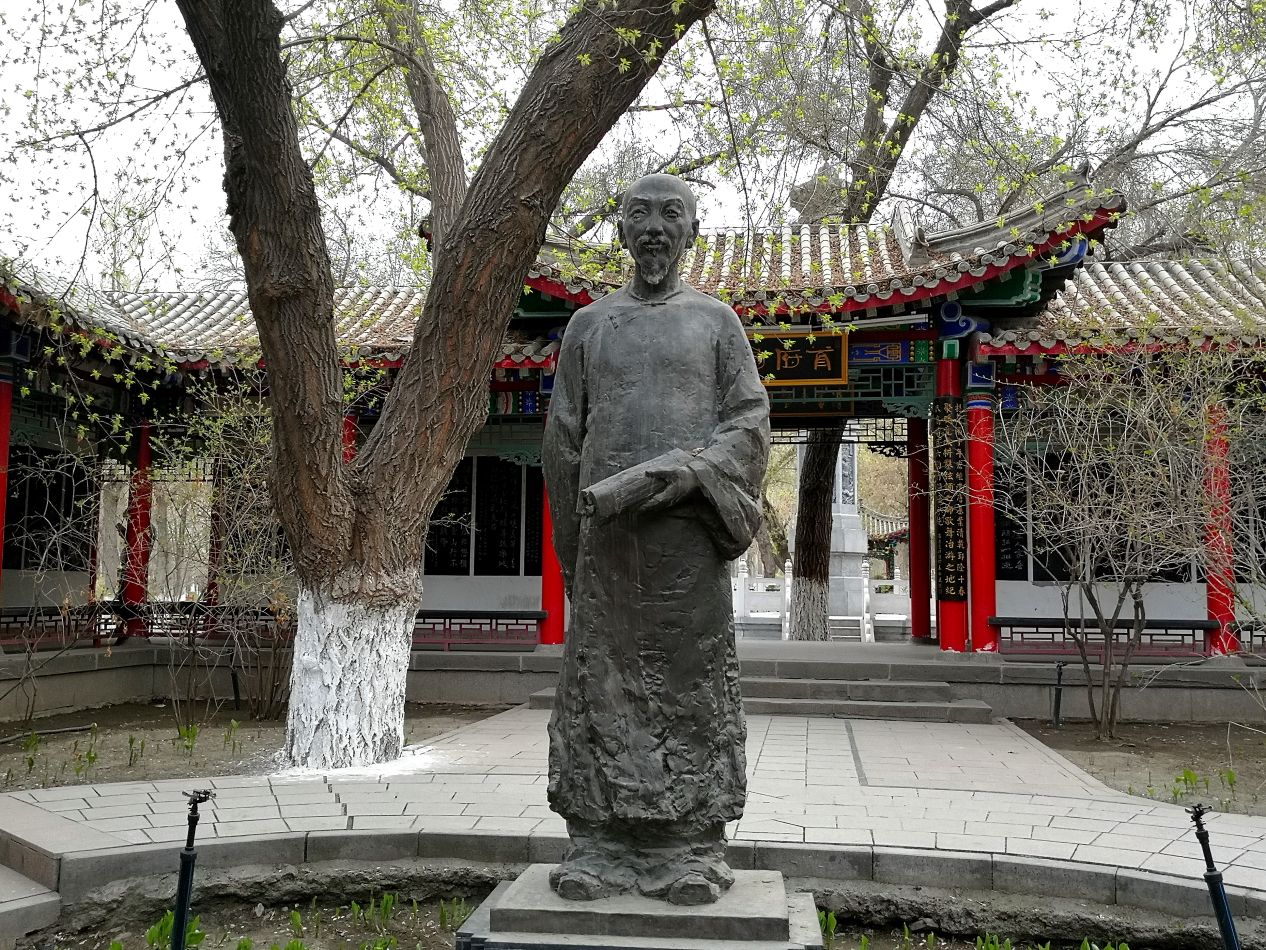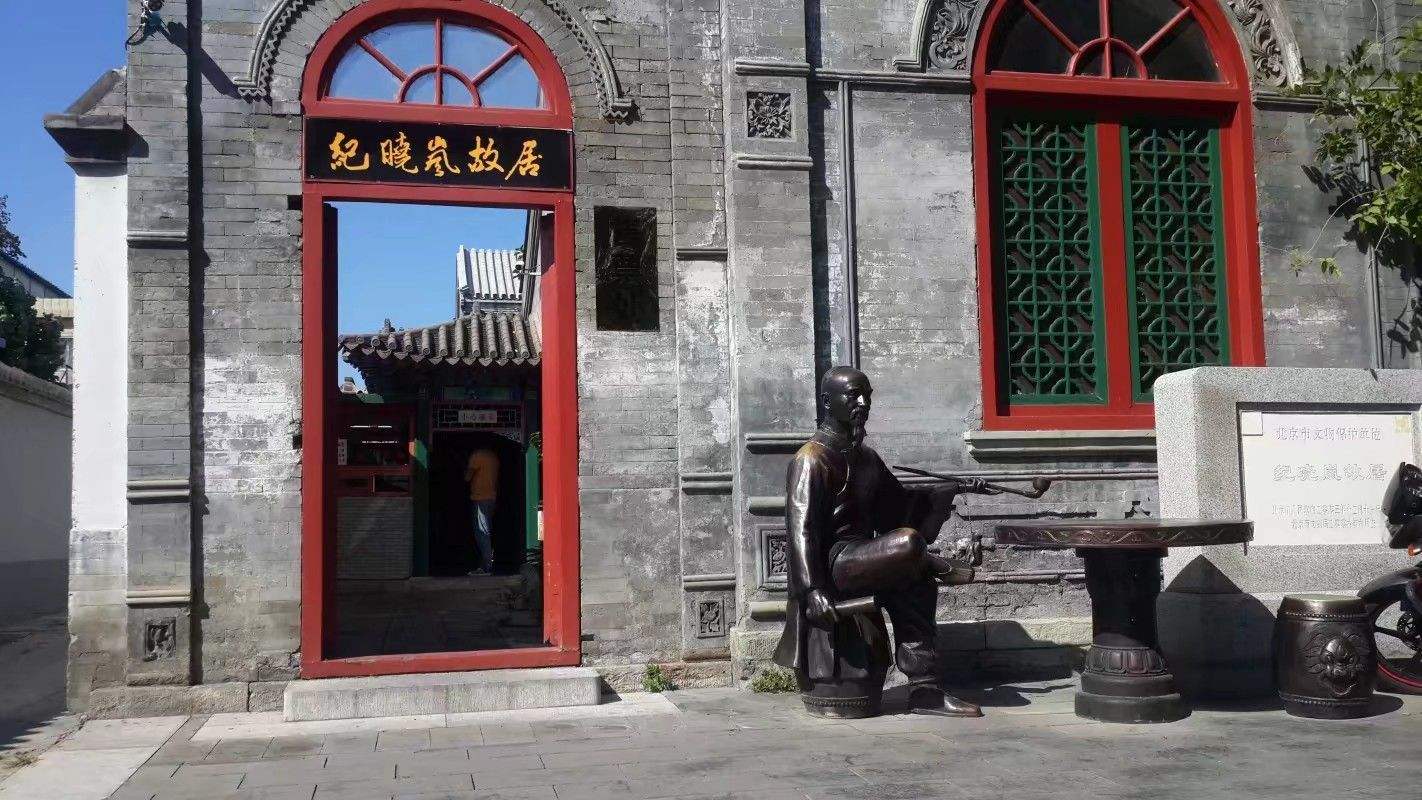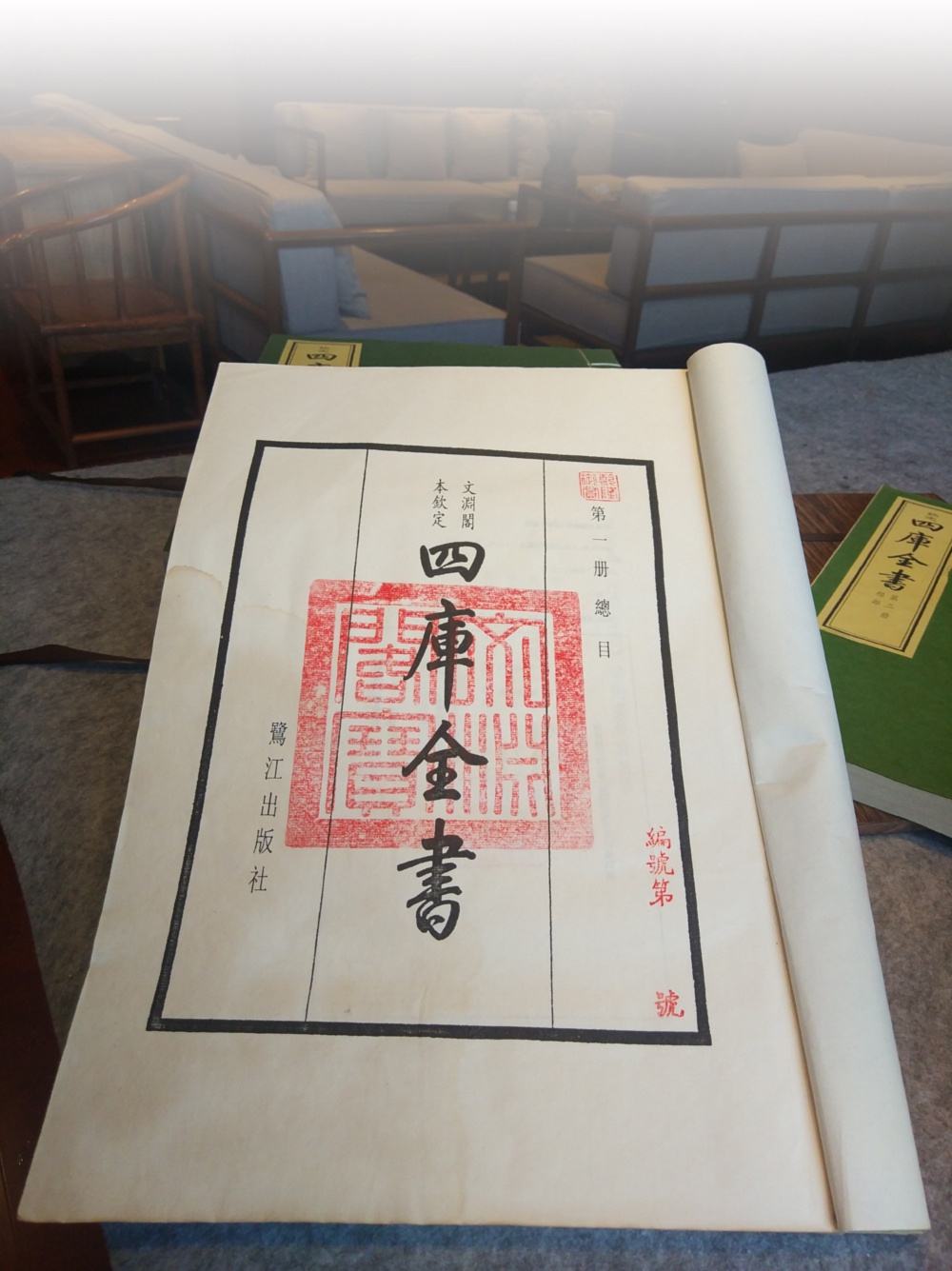A philologist who majoring in Si Ku Quan Shu
Overview
Chinese Name: 纪昀
English Name: Ji Yun
Other Names: Ji Xiaolan 纪晓岚, Ji Wenda 纪文达, Ji Hejian 纪河间
Born: August 3, 1724
Died: March 14, 2005
Achievements:
Compile Si Ku Quan Shu 编撰《四库全书》
Main Works:
Si Ku Quan Shu《四库全书》
Yuewei Caotang Notes《阅微草堂笔记》

Brief Biography of Ji Yun
Ji Yun is a litterateur and official of the Qing Dynasty 清朝.
Ji Yun (from August 3, 1724, to March 14, 2005), courtesy name Xiaolan 晓岚 and Chunfan 春帆, art name Shiyun 石云, was a native of Xian County 献县, Hejian Prefecture 河间府, Zhili (now Xian County, Cangzhou City 沧州市, Hebei Province 河北省).

In the 19th year of Qianlong 乾隆’s reign in the Qing Dynasty (1754), he was admitted to the imperial examination as a scholar. His official position came to the Ministry of Rites as a minister. He used to be the chief editor of Siku Quanshu 四库全书.
In the tenth year of Jiaqing 嘉庆 (1805), he died of illness at the age of 82. Because he was quick and eager to learn, he was awarded the title of” Wen Da 文达 “(an inscription given by Emperor Jiaqing).
Personal Life and Major Contributions
Early experience
At noon on June 15, the second year of Yongzheng 雍正’s reign (1724), Ji Yun was born in Cuierzhuang 崔尔庄 (now Cuierzhuang Town 崔尔庄镇, Cang County 沧县, Hebei Province 河北省), three miles east of Xian County 献县 Jingcheng 景城, Hejian Prefecture 河间府, Zhili 直隶. He is the second son of Ji Rongshu 纪容舒.
In the fifth year of Yongzheng (1727), he was taught by Mr. Ji Ruai 及孺爱.
In the eighth year of Emperor Yongzheng’s reign (1730), he participated in the Tongzi Test and was nicknamed ‘child prodigy 神童’ with excellent results.

In the 12th year of Emperor Yongzheng’s reign (1734), Ji Yun, 11 years old, went to the capital with his father and joined the scholar Yun Jingshe.
In the fifth year of Qianlong 乾隆’s reign in the Qing Dynasty (1740), Ji Yun, 17, married Ma, 20, in a neighboring county. Ji Yun had a wife and six concubines.
Concern about folk suffering
Ji Yun pays close attention to folk suffering. In the fifty-ninth year of Qianlong’s reign, Zhili, Shandong 山东 and other provinces suffered from floods. Hungry people flocked to the capital for food. Ji Yun hurriedly told the emperor about his feelings and asked the emperor to intercept the official grain of Nancao, and set up gruel to relieve the victims.

The capital’s hungry people did not drive away, and the social order was stabilized. Although its subjective purpose is to maintain the rule of the imperial court, it objectively helped the victims through the famine, which can not be said to be a good government.
Literary influence
Ji Yun has always been the leader of the official academic work, and he will be there whenever there is an editorial service or book repair. In his life, he led and participated in the compilation of many important classics. Therefore, Ji Yun is a scholar who has made great contributions to the history of Chinese culture. In his lifetime, his devoted his whole life to Si Ku Quan Shu 《四库全书》, and his Notes on Yuewei Caotang Notes《阅微草堂笔记》 and Jiwenda’s Remains 《纪文达公遗集》 have also been handed down.
Si Ku Quan Shu 《四库全书》
The compilation of Si Ku Quan Shu lasted 14 years from the opening of Siku Hall 四库馆 in February of the 38th year of Qianlong’s reign (1773) to the closing of Siku Hall in the 52nd year of Qianlong’s reign (1787). Ji Xiaolan has always been the chief editor.
There are 200 volumes of the Summary of the General Catalogue of the Siku Quanshu, and 3461 kinds of official books have been collected; There are 6819 kinds of bibliographic books and more than 93500 volumes. Because the General Catalogue is so voluminous that it is inconvenient to review, it has been edited into 20 volumes of the Concise Catalogue of the Four Library Complete Books. The General Catalogue of Si Ku Quan Shu records 105 kinds of books, and 41 kinds of books are stored in the catalog. There are “Spring Sail Correction”, “Heart and the Ancients Association”, “Tianlu”, “Hejian Jiyun”, “Yinghai Jishi’s Seal of Reading Micro Thatched Cottage”, etc.

Yuewei Caotang Notes《阅微草堂笔记》
Yuewei Caotang Notes has a total of more than 380000 words and 24 volumes. The book is divided into five columns, including six volumes of Luanyang Summer Relieving Records, four volumes of Like I Hear, four volumes of Huaixi Magazine, four volumes of Guwanshouzhi, and six volumes of Luanyang Continued Records, which were written successively from the 54th year of Qianlong (1789) to the third year of Jiaqing (1798).
In the fifth year of Jiaqing in the Qing Dynasty (1800), it was printed by its disciple Sheng Shiyan 盛时彦. The book mainly records the stories of fox ghosts, gods and monsters, which are intended to encourage good and punish evil. Although there is no lack of preaching of retribution, through various descriptions, it reflects the decadence and darkness of the feudal society at the end of the world.